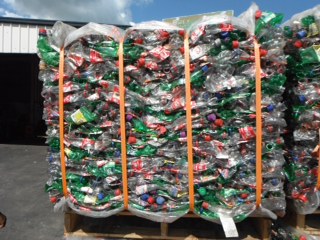
Zero waste means reducing what we trash in landfills and incinerators to zero.
Zero Waste is a way of thinking about, designing, and managing products and processes to reduce the volume and toxicity of materials and thus waste, to conserve and recover all resources, and to ensure resources are neither burned nor buried. Zero Waste is not the same as 100 % recycling, since Zero Waste seeks to design waste out of the entire industrial production system, rather than just figure out how to re-use it after the fact. The Zero Waste International Alliance says, “Zero Waste is a goal that is both pragmatic and visionary, to guide people to emulate sustainable natural cycles, where all discarded materials are resources for others to use.”
Zero Waste is a philosophy and a design principle for the 21st Century. It includes ‘recycling’ but goes beyond recycling by taking a ‘whole system’ approach to the vast flow of resources and waste through human society.
Zero Waste maximizes recycling, minimizes waste, reduces consumption and ensures that products are made to be reused, repaired or recycled back into nature or the marketplace.
Zero Waste makes recycling a powerful entry point into a critique of excessive consumption, waste, corporate irresponsibility, and the fundamental causes of environmental destruction.
Zero waste programs include all of the following strategies:
- Reducing consumption and discards
- Reusing discards
- Extended producer responsibility
- Comprehensive recycling
- Comprehensive composting or bio-digestion of organic materials
- Citizen participation
- A ban on waste incineration
- Effective policies, regulations, incentives, and financing structures to support these systems.
Adopting a zero waste approach to resource management is critical to the future of our planet.
